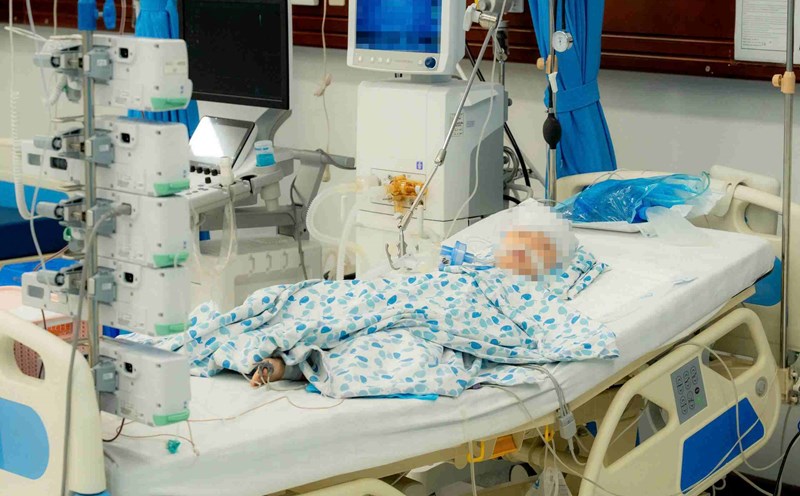For about 3 years now, staying up late and not sleeping many times in the middle of the night has been a luxury for Mr. N.V.C. (59 years old, Binh Tan ward, Ho Chi Minh City).
"I often urinate in the middle of the night, and my body lacks sleep for a long time, causing my health to decrease significantly compared to before. I have also had many neurological examinations but my condition has not improved," Mr. C. shared.
After a long time of being examined at a hospital near his home, Mr. C. decided to go to Binh Dan Hospital, Ho Chi Minh City for examination and was diagnosed with lower urinary tract disorder.
According to Dr. Nguyen Dao Thuan - Department of Intensive Care Ki drug surgery, Binh Dan Hospital, the lower urinary tract includes the bladder, prostate (in men) and urine. When the nervous system controlling urinary tract function is damaged, such as in a cerebral vascular accident, Parkinson's or spinal cord damage will lead to urinary tract disorders. In addition, mechanical problems such as prostate enlargement, muscle weakness in the urethra or bladder damage are also common causes.
"The elderly often suffer from many underlying diseases at the same time, causing the risk of lower urinary tract disorders to increase. Many people subjectively believe that drip overnight is inevitable in old age, but when the frequency of dripping overnight is two or more times, it is an unusual warning sign," Dr. Thuan emphasized.
Urinary disorders not only have physical effects such as fatigue and insomnia but also have a negative impact on spirit and quality of life. Clinical reality shows that in many cases, patients urinate on their own, fall, causing broken bones or prolonging the urinary tract situation, causing kidney failure and requiring emergency care.
To diagnose correctly, the patient needs to be examined carefully, including medical history questions, clinical examinations, ultrasounds to measure the amount of remaining urine and urine testing. Treatment will depend on the cause and severity, it may only require lifestyle adjustments, medication or surgical intervention.
Doctor Thuan recommends: "This is a chronic disease. Patients need to comply with treatment, regular check-ups and combine a healthy lifestyle. In particular, family members should pay more attention to the elderly to detect unusual symptoms early".
Lower urinary tract disorder is an issue that can be effectively controlled if detected and intervened promptly. Don't let fear keep the disease progressing silently and causing unfortunate complications.











